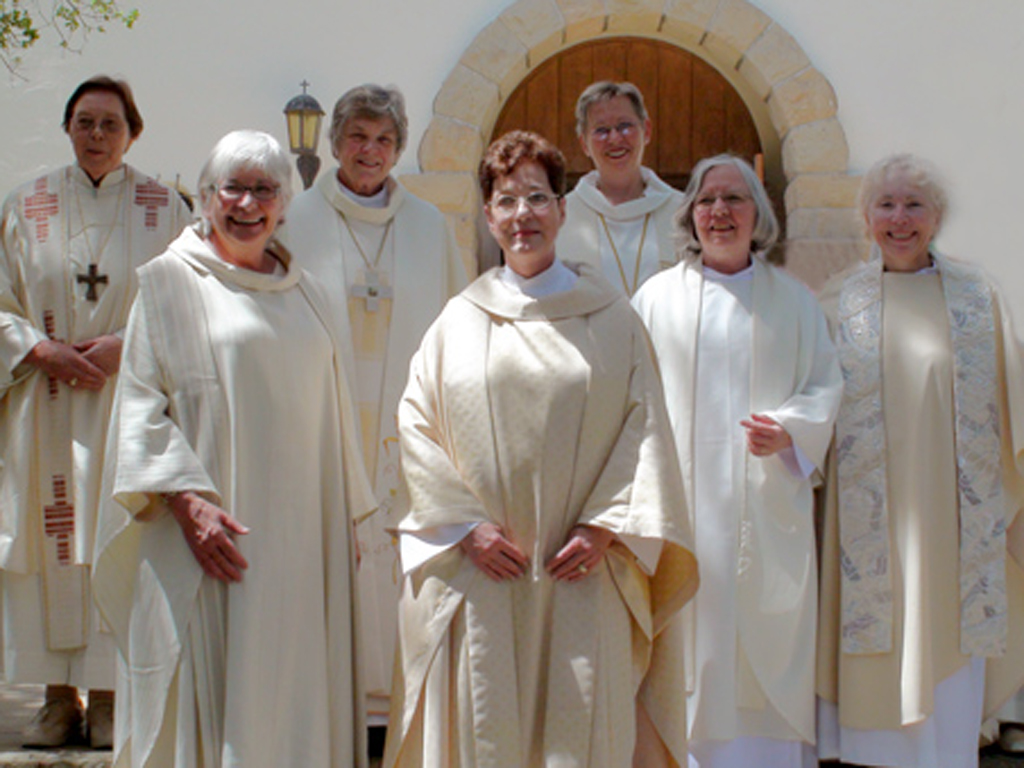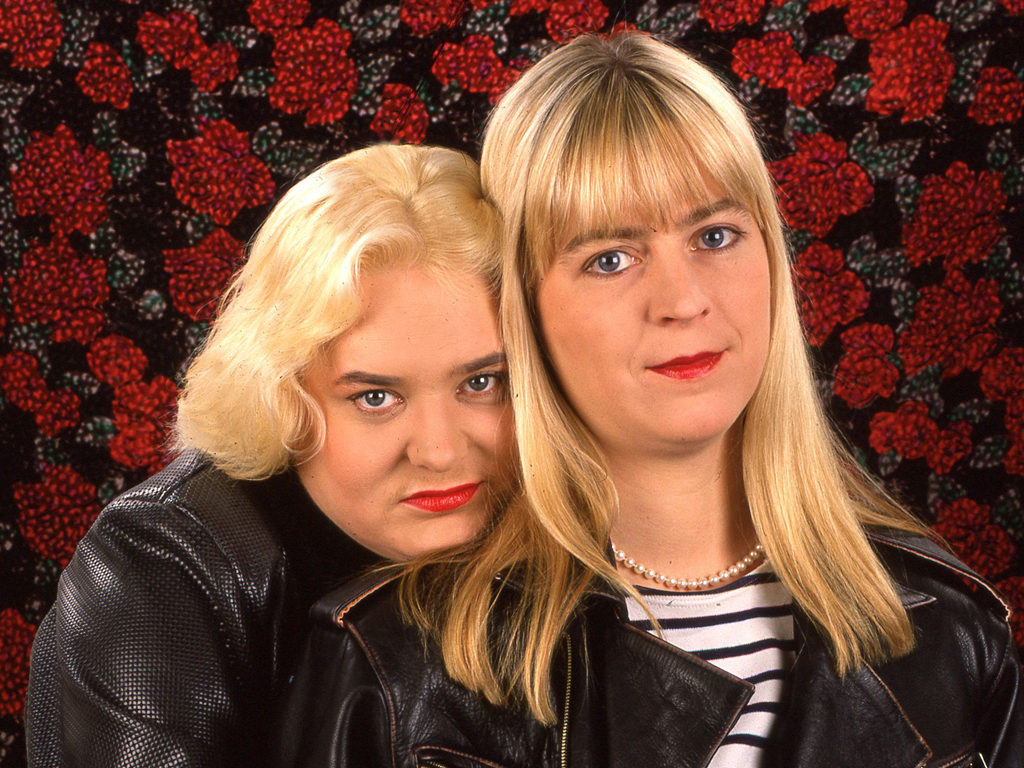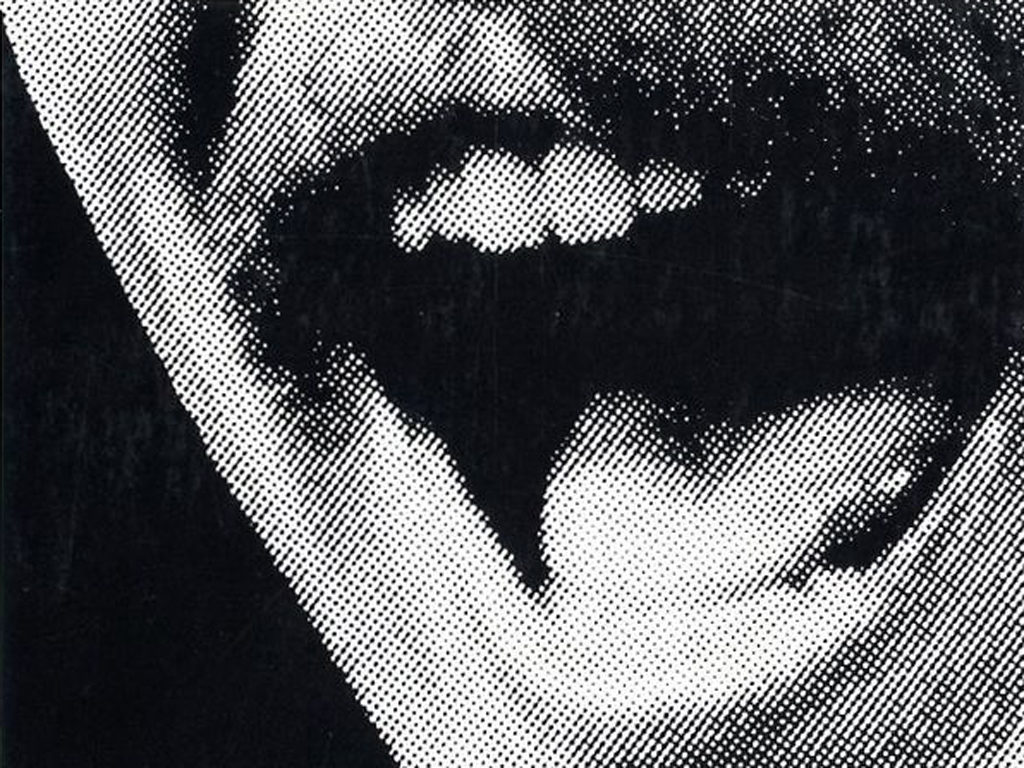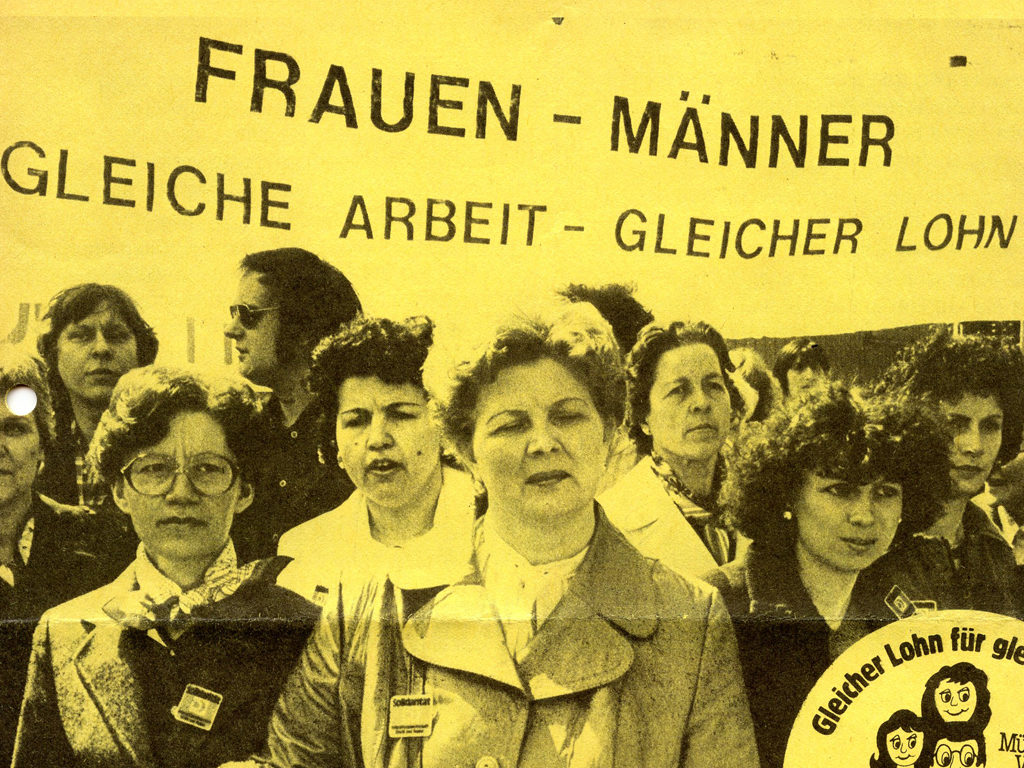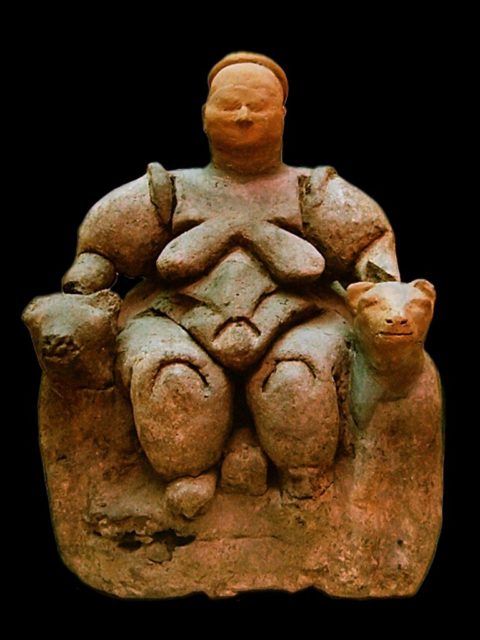
“Let your women keep silence in the churches.”1 But women want to have a voice in the Church – and not only as members of the congregation, but in dialogue with God and all the way up to leading positions within the church hierarchy.
From the beginning of the 1970s – and in the footsteps of American trailblazers – feminist theology also developed in Germany. Feminist theologians exposed common biblical interpretations as ranging from downright patriarchal to “masculinising” what were originally female figures; they challenged the male idea of God and discovered the “Great Goddess”. They called for a less male-centric language in the hymns and liturgy of the Church as well as the admission of women to the priesthood. When feminist theology takes its first steps in Germany, of the approximately 13,000 pastors only 2% are female. In 1958, the Protestant Church ordained its first female pastor.2 The Catholic Church, which had only allowed women to study theology since 1946, still adheres to the exclusion of women from the priesthood today.
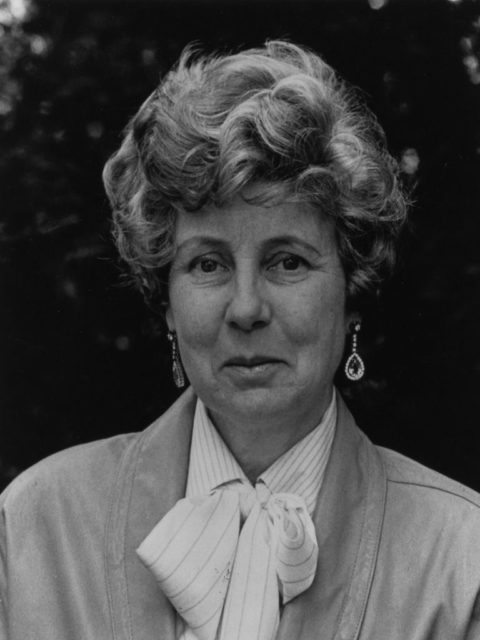
1970: University Allows Female Lecturer in Catholic Theology
Uta Ranke-Heinemann, who in 1969 became the first woman to qualify as a university lecturer in Catholic theology, takes up a professorship in Catholic theology at the Pädagogische Hochschule in Neuss, also as the first woman. From the beginning, Heinemann criticises the Catholic Church’s stance on the role of women.
1971: Discussion on Women’s Role in the Catholic Church
The Gemeinsame Synode der Bistümer in der Bundesrepublik Deutschland begins in Würzburg. It has the task “to promote in its area the implementation of the Second Vatican Council’s decisions”. The Second Vatican Council, at which supporters of the modernisation of the Catholic Church play a leading role, had also discussed women’s role and participation in the Church. The theologian Ida Raming – who graduated from university in 1970 with a dissertation on the Stellung und Wertung der Frau in der römisch-katholischen Kirche – had together with a colleague formulated a petition in favour of the full equality of women in the diaconate and priesthood. The petition is rejected. At the synod in Würzburg, the women’s question is brought up again. Although the admission of women to the priesthood remains out of the question, the synod recommends the ordination of deaconesses..3
1973: „If God is male, then male is God“
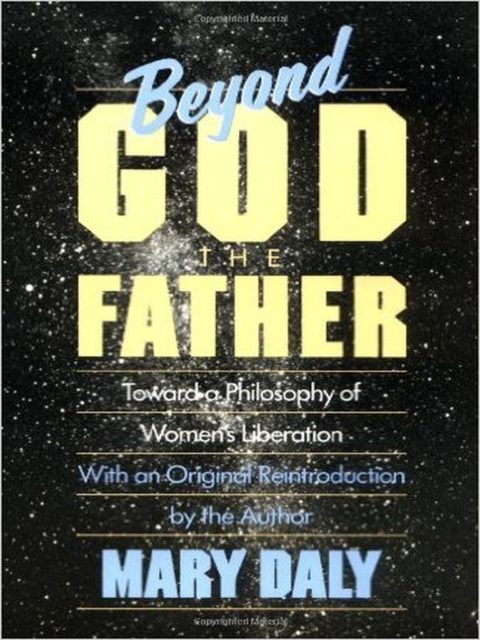
Beyond God the Father: Toward a Philosophy of Womens’s Liberation by the feminist theologian and philosopher Mary Daly (1928-2010) is published in the USA.4 The Catholic Daly – who teaches at the Jesuit university Boston College – is one of the most significant feminist theologians. Daly levels harsh criticism against the patriarchy of the Church in her texts, including against its male concept of God: her most famous statement is “if God is male, then male is God”. The theologian had already criticised the misogyny of the Catholic Church in her 1968 study The Church and the Second Sex5 and called for the opening of all Church offices to women. In her second book Beyond God the Father, however, the idea of equality for women in the Church seems to Daly to be “comparable to a black person demanding equality in the Ku Klux Klan”. The book is widely read by devout German feminists.
15 October 1976: No Ordination for Women
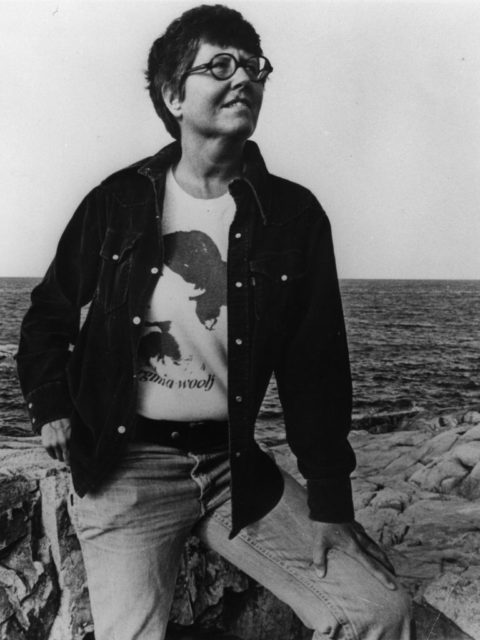
The Congregation for the Doctrine of the Faith proclaims in the declaration Inter insigniores that the Church “in fidelity to the example of the Lord does not consider herself authorised to admit women to priestly ordination”. The rationale behind this argument is that Christ only appointed men to be his twelve apostles and these, in turn, only chose men to be their successors, therefore establishing the fundamental tradition and lasting importance of this practice. Since discussion about the ordination of women persists, Pope John Paul II again explicitly rejects admitting women to the priesthood on 22 May 1994 in the apostolic exhortation Ordinatio Sacerdoti, recalling the reasoning of the Congregation for the Doctrine of the Faith’s declaration of 1976. The Church lacks the authority to ordain women to the priesthood.6
1977: Ecumenical Group HuK
The ecumenical group Homosexuelle und Kirche (HuK) is established at the Protestant Church congress in Berlin.
January 1978: Protestant Church for Equality of Female and Male Pastors
In all Protestant regional churches that are part of the federation Evangelische Kirche in Deutschland (EKD), female pastors are given equal status to male pastors: the small regional church in Schaumburg-Lippe is the sole exception, as it does not adopt this regulation until 1991.7 In the GDR, gender equality had been implemented four years earlier.
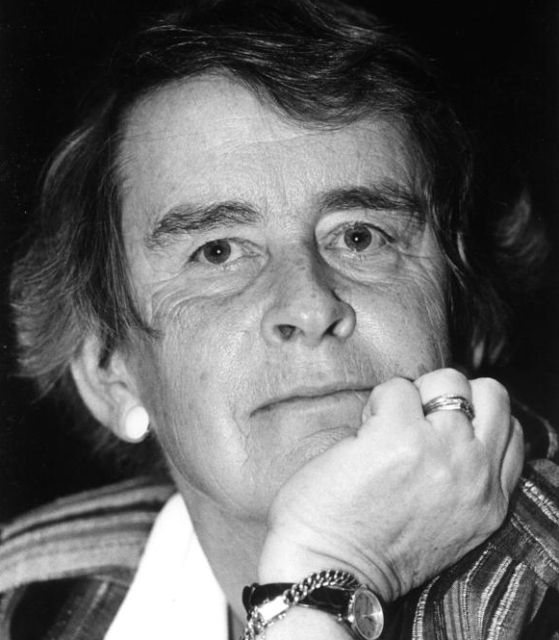
February 1979: Conference „Feministische Theologie“
On the initiative of the feminist theologians Herta Leistner, Elisabeth Moltmann-Wendell, and Heidemarie Langer, the Protestant Academy in Bad Boll near Göppingen issues an invitation to the conference „Feministische Theologie“. The text of the invitation states: “In the search for their own identity, women must themselves become the subject of theological study and practice; they must contribute their own experiences.“8 The response is considerable. Up to 200 participants attend the roughly 30 workshops at the conference, which the academy will from now on organise on a regular basis.
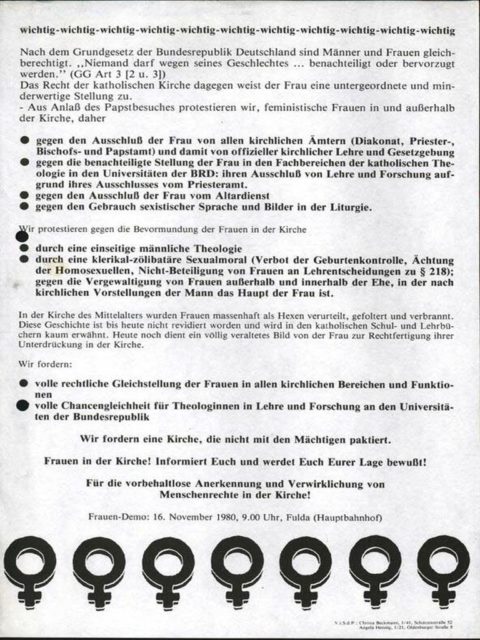
Elisabeth Moltmann-Wendel writes: “In the early years, the workshops at the Feministische Theologie conference in Bad Boll were still governed by issues that expressed liberation from patriarchal theology and the Church: i.e., notions of God, language, tradition, structure, spirituality, body hostility, and (above all) freedom from a male-defined understanding of sin, which is a common thread.”
Further: “It quickly became clear to the women that they needed to take possession of to fill these topics themselves: to develop and test an own feminist hermeneutics, to discover long-buried women’s history and comprehend its meaning, to create own forms of worship, to equip women with ‘power’, and to get them into leadership positions.“9 At Protestant Church congresses, feminist theologians and their issues are from now on very visible.
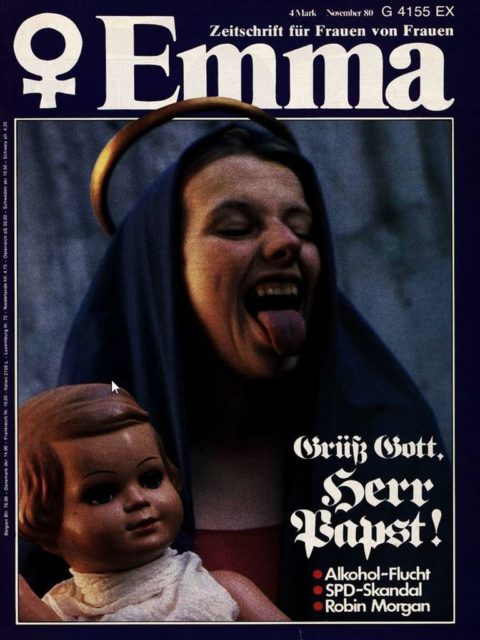
16 November 1980: Demonstration Against Paternalisation
On the occasion of Pope John Paul II’s visit to Germany, a demonstration against the paternalisation of women in the Church takes place in Fulda. The participants call for the legal equality of women in all areas and functions of the Church and for equal opportunities for female theologians in teaching and research at universities.10
1981: Union for Feminist Theologians
The Arbeitsgemeinschaft Feminismus und Kirche e.V. is established as a non-denominational union for feminist theologians from German-speaking countries.
21 September 1981: New Church Code – Old Problems
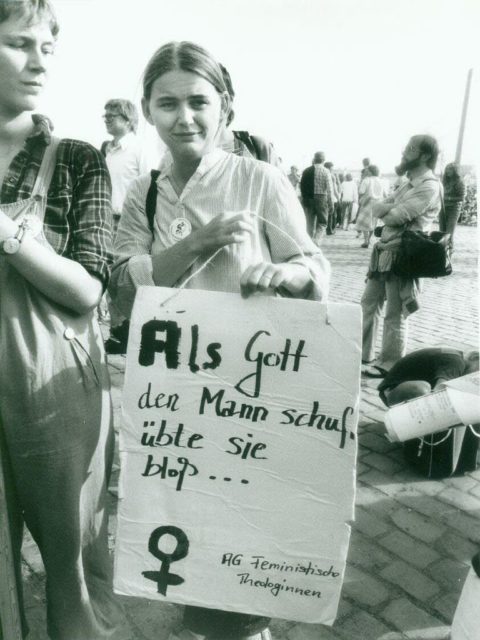
In a statement by the Deutsche Bischofskonferenz, the bishops speak out in favour of the women’s desire to engage critically with a world predominantly shaped by men, of women’s demand for equality, and of the reduction of all forms of discrimination in the Church. The new Church code, which comes into force in late 1983, eliminates a number of discriminatory practices within the Church. However, women are still excluded from the priesthood and the diaconate.11
1983: Toward a Feminist Theology
Sexism and God-Talk. Toward a Feminist Theology by the American theologian Rosemary Radford Ruether is published.12 The Catholic Radford Ruether is chair of the organisation Catholics for a Free Choice, which supports women’s right to abortion. Radford Ruether launches, among other things, the campaign A Catholic Statement on Pluralism and Abortion: on 7 October 1984, the New York Times publishes a full-page appeal, in which 80 signatories declare that the Catholic Church’s view of abortion as “morally wrong under all instances” is not “the only legitimate Catholic position.13
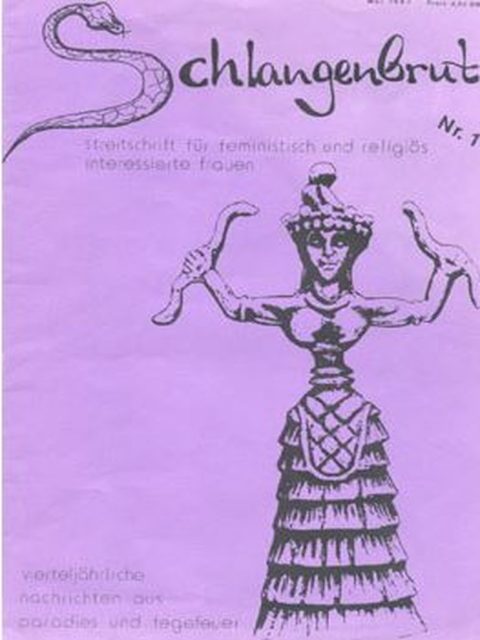
German feminist theologians establish the journal Schlangenbrut, in which texts by and for women from different religious traditions and social contexts are published quarterly. Every issue comprises a key topic, interviews, reviews, news, and events. Its successor INTA.Interreligiöses Forum, the first interreligious and feminist journal in German, will be published from 2014 to 2016.
18 April 1984: First Gay Marriage
A pastor marries a female couple for the first time in Hamburg (see our text on female homosexuality) : taxi driver Sabine Löschenkohl and housewife Sylvia Hansen. The media response is huge. “Lesbian Wedding: Love at First Sight” (Bild); “The Lesbian Married Couple: One Heart and One Soul” (Bild der Frau). EMMA reports about the landmark marriage in a cover story. In an opinion piece, Alice Schwarzer makes the case for gay marriage, rejected at this time by most feminist lesbians as a “patriarchal instrument of domination”. Schwarzer postulates: “In a compulsively heterosexual world like ours, it is and remains unheard of to take homosexual love as seriously as heterosexual love.“15 This prognosis seems to come true: the North Elbian Evangelical Lutheran Church initiates proceedings against against the Rev. Christian Arndt for abuse of office; the marriage is declared null and void.16 The pastor is reprimanded by the Church.17
December 1985: Netzwerk Lesben und Kirche
As part of a conference at the Akademie Bad Boll, the network Netzwerk Lesben und Kirche (LuK) is established. The network sees itself as a “union of women who feel differently connected to the faith and the Church, who want to who want to live self-confidently as lesbians of faith, and (…) who criticise the patriarchal form of the Church and of worship and are on the lookout for new forms“.18 The LuK publishes the journal LuK-LekTüre – comprising information, articles, and notices on upcoming events – on a biannual basis.
1986: Handbook on Feminist Theology
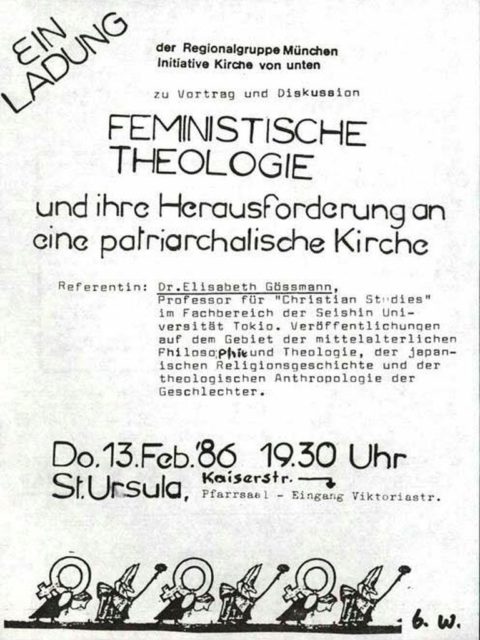
The Arbeitsgemeinschaft Feminismus und Kirche e.V. publishes the Handbuch Feministische Theologie. In this handbook, the working group contends: “It has become clear across a number of women’s groups that we need a book that makes feminist theology accessible to women from different backgrounds and experiences, that clarifies its chief arguments and points of contention, that portrays feminist theology in practice, and that offers a foundation for further, independent feminist-theological study.“19
December 1987: First Female Provost
The Protestant theologian and pastor Helga Trösken is elected Provost of Frankfurt by the Evangelischen Kirche Hessen-Nassau (EKHN). Trösken is thus the first woman in Germany to take up a leadership position within the Protestant Church.
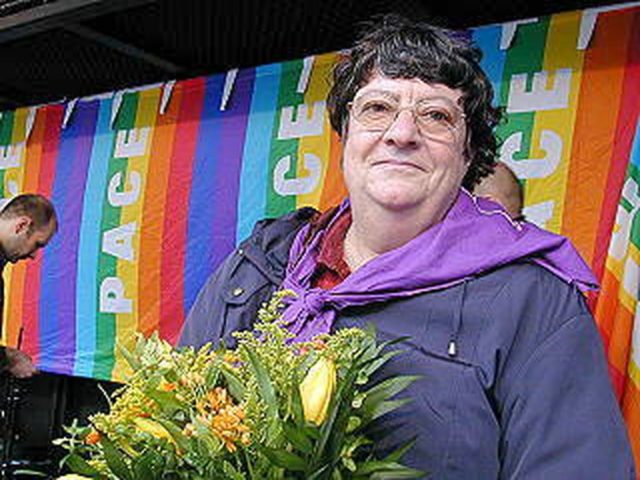
15 June 1987: Ranke-Heinemann – Harshest Critic of the Catholic Church
Uta Ranke-Heinemann – who now teaches Catholic theology at the University of Essen – is deprived of her permission to teach by the Bishop of Essen Franz Hengsbach because she publicly stated that she did not believe in the virgin birth of Jesus.20 Her book Eunuchen für das Himmelreich – Katholische Kirche und Sexualität21 is published one year later and becomes a bestseller. Ranke-Heinemann becomes one of the harshest and best known critics of the Catholic Church, in particular with respect to its discrimination of women.
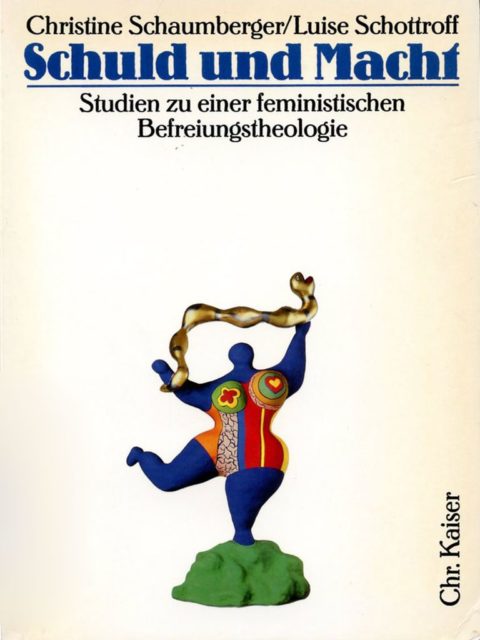
3 – 5 August 1987: Summer University for Feminist Theology
Luise Schrottroff, professor of New Testament at the Gesamthochschule in Kassel, and her assistant Christine Schaumberger launch the first summer university for feminist theology in Kassel. 55 women and six men from West Germany, Denmark, and Switzerland discuss the topic “Schuld und Macht aus der Perspektive feministischer Befreiungstheologie”, “guilt and power seen from the perspective of feminist liberation theology” in papers and project teams“.22
Fall 1987: Hättest du gedacht, dass wir so viele sind? Lesbians in Church
Hättest Du gedacht, dass wir so viele sind? Lesbische Frauen in der Kirche – produced by women from both Protestant and Catholic church circles – is published. Authors are Herta Leistner, Monika Barz, and Ute Wild.23
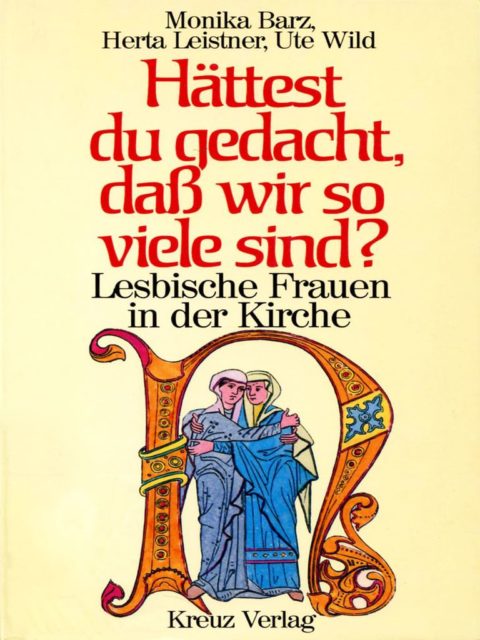
1988: An Anti-Feminist Pope
The World Council of Churches proclaims the “Ecumenical Decade of Churches Solidarity with Women.24 On 15 August of the same year, Pope John Paul II publishes the apostolic letter mulieris dignitatem, in which he declares “the hour is coming, in fact has come, when the vocation of women is being acknowledged in its fullness, the hour in which women acquire in the world an influence, an effect and a power never hitherto achieved”. However, the Pope sees the two “particular dimensions of the vocation of women in the light of divine Revelation” as ‘motherhood’ and ‘virginity’. He continues to strongly reject the idea of women in the priesthood in view of the fact that Jesus only appointed male apostles.
June 1988: First Ecumenical Congress of Christian Women
![Bartsch, Gabriele; Dehlinger, Gisela; Kaden, Kathinka; Renninger, Monika [Hrsg.] (1996): Theologinnen in der Männerkirche. Bartsch, Gabriele; Dehlinger, Gisela; Kaden, Kathinka; Renninger, Monika [Hrsg.] (1996): Theologinnen in der Männerkirche.](http://frauenmediaturm.de/wp-content/uploads/2018/06/Theologinnen_in_der_Maennerkirche-480x640.jpg)
1989: Equality for Men and Women in Church Committees
At the 7th EKD synod in Bad Krozingen, the decision is made under the heading “Gemeinschaft von Frauen und Männern in der Kirche” to aim for a “balanced representation of men and women in church committees“.26 Furthermore, women’s studies in theology and religion is to be promoted.27 An exhibition on the topic of women in theology – “Das Weib schweigt nicht mehr – Wie das Amt der Theologin Wirklichkeit wird” – is created to run alongside the synod at the suggestion of Dietlinde Cunow, then chairwoman of the Konvent Evangelischer Theologinnen in der BRD. As a result of the synod’s resolutions, a women’s education and training centre and a Frauenreferat are set up at the beginning of the 1990s. The first professorship for ecclesiastical history and historical women’s studies is created in 1994 within the Faculty of Theology at the University of Marburg.
What happens next?
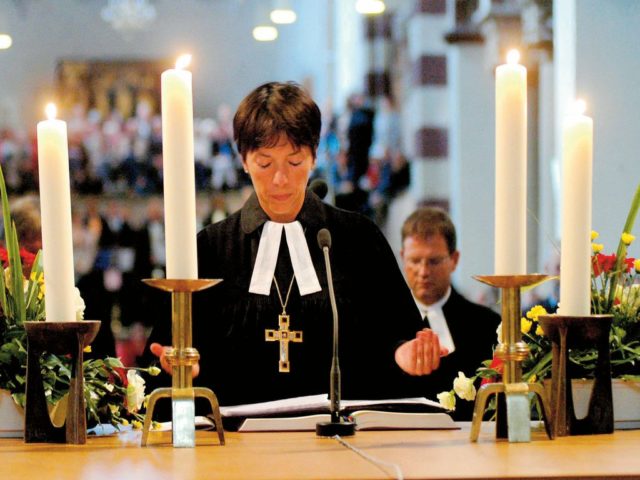
On 4 April 1992, the Protestant theologian Maria Jepsen is elected Bishop of Hamburg. Jepsen is the world’s first Evangelical Lutheran bishop. In 1999, Margot Käßmann becomes Bishop of the regional church of Hannover, and in 2009 the first female council president of the EKD. In March 2009, Ilse Junkermann becomes the third German female bishop. In November 2011, Annette Kurschus is appointed praeses of the Protestant Church of Westfalen, and thus – as head of the regional church – holds the office of bishop. The 15-member council of the EKD, composed of seven women and eight men, almost achieves a gender diverse board. Since November 2013, the synod of the EKD is headed by a woman, the former FDP minister Irmgard Schwaetzer.
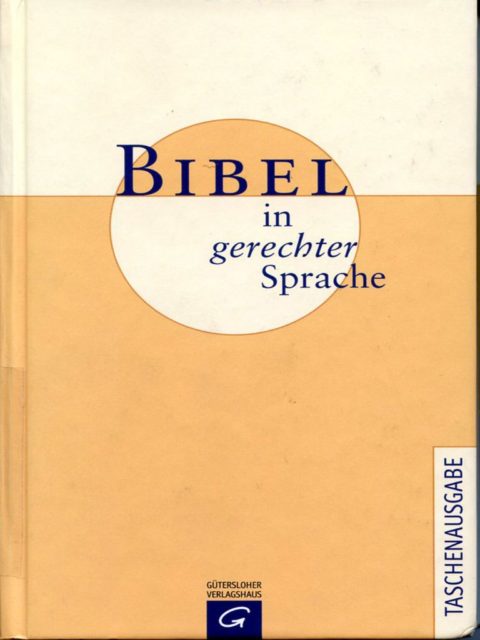
The Bibel in gerechter Sprache is published in 2006.28 The project is initiated by an “editorial board” consisting of 13 theologians. Approximately 50 theologians retranslate the Old and the New Testaments. The use of gender-neutral language is only one aspect of this new, non-discriminatory translation, albeit an important one: “In the Bibel in gerechter Sprache, passages that are not exclusively about men, but about both genders are consistently made visible. Thus, Apostelinnen [‘female apostles’], Diakoninnen [‘deaconesses’], Prophetinnen [‘female prophets’], and Pharisäerinnen [‘female Pharisees’] feature in the wording of the text. It becomes clear that women were actively involved in scriptural events […], that they are – then as now – addressed and not only implied.“29 (see our text on language and gender )
The EKD in Hannover opens its Studienzentrum für Genderfragen in Kirche und Theologie in April 2014. The centre publishes the first Atlas für die Gleichstellung von Frauen und Männern in der EKD30 on 8 March 2015. According to the Atlas, every one in three Protestant pastors in Germany is female. In regional and national synods, 38% of members are female. More than 50% of theology students are now female.
The Catholic Church continues to refuse to admit women to the priesthood. With the papacy of Pope Francis, however, new attitudes seem to have been introduced to the Vatican. The Pope – who repeatedly sends clear signals to women – states that “the feminine genius is needed wherever we make important decisions.“31 For example, in 2016 for the first time in history a sitting Pope invited four women to the Easter foot-washing ritual.
Also at Easter 2016, the Vatican agrees to a new version of the so-called Einheitsübersetzung or ‘unity translation’ of the Bible. The official Bible translation for all Catholics in German-speaking areas had not been changed since 1978. Important alterations are made in the new translation that also have an impact on the role of women in biblical stories. For example, in Paul’s Epistle to the Romans the apostle Junias is replaced by the (female) apostle Junia, the address “brother” by “brothers and sisters”. The virginity of Mary is also called into question: the new translators point out that the “Hebrew word almáh actually [means] young woman“32.
On the occasion of an audience with 900 Mother Superiors in May 2016 , the Pope announces that a commission will investigate the possibility of consecrating women as deaconesses.33
Sources
1 First Epistle to the Corinthians (1 Corinthians 14,33b - 35.) Same passage in the German Einheitsübersetzung - the 'Unity' or the 'Unified' Translation - from 1980.
2 Elisabeth Haseloff becomes the first female pastor of the United Evangelical Lutheran Church in Germany in 1958. Haseloff was co-editor of the journal Die Theologin.
3 Ida Raming is ordained as a priestess on a ship on the Danube in 2002 and subsequently excommunicated for violating Church law.
4 Daly, Mary (1980): Jenseits von Gottvater Sohn und Co. : Aufbruch zu einer Philosophie der
Frauenbefreiung. - München : Frauenoffensive (FMT-Shelf Mark: ST.11.007).
5 German Translation: Daly, Mary (1970): Kirche, Frau und Sexus. - Olten : Walter (FMT-Shelf Mark: ST.11.022).
6 "Wir sind Priesterinnen" : aus aktuellem Anlass: die Weihe von Frauen 2002 (2002): Ertel, Werner [ed.] ; Forster, Gisela [ed.]. - Düsseldorf : Patmos-Verl., 207 p., S. 154 (FMT-Shelf Mark: ST.11.092). Demel, Sabine (2004): Frauen und kirchliches Amt. - Freiburg (u.a.) : Herder, 152 p., p. 78 f. (FMT-Shelf Mark ST.11.112); Laurien, Hanna-Renate (1995): Abgeschrieben?, p. 11 f (FMT-Shelf Mark: ST.11.086).
7 Raming, Ida (1989): Frauenbewegung und Kirche. - Weinheim : Dt. Studien-Verl., 179 S., p. 19 f (FMT-Shelf Mark: ST.11.029) und Theologinnen in der Männerkirche (1996). - Bartsch, Gabriele [ed.] ; Dehlinger, Gisela [ed.] ; Kaden, Kathinka [ed.] ; Renninger, Monika [ed.]. Stuttgart : Quell, p. 144 (FMT-Shelf Mark ST.11.088).
8 Rivuzumwami, Carmen (2007): Die Evangelische Akademie Bad Boll - ein Ort der (kirchlichen) Frauenbewegung. – In: Online-Texte der Evangelischen Akademie Bad Boll. Retrieved from: http://www.ev-akademie-boll.de/fileadmin/res/otg/07-08-Rivuzumwami.pdf
9 Ibid.
10 Pamphlet printed for the demonstration to protest Papal visit on 16 November 1980 (FMT-Shelf Mark: FB.02.101).
11 Seibel, Wolfgang (1986): Die Stellung der Frau in der Kirche. - In: Stimme der Zeit : Die Zeitschrift für christliche Kultur, Nr. 4, p. 217 - 218.
12 Radford Ruether, Rosemary (1983): Sexism and God-Talk: Toward a Feminist Theology. - Boston : Beacon Press.
13 Hunt, Mary E. ; Kissling, Frances (1987): The New York Times Ad: A Case Study in Religious Feminism. - In: Journal of Feminist Studies in Religion Nr. 1, p. 115 - 127.
14 Berger, Katrin (2014): Ausgebrütet : 30 Jahre Schlangenbrut. - In: Schlangenbrut, Nr. 121, p. 3. Alle Ausgaben der Schlagenbrut sind zu finden unter der FMT-Shelf Mark: Z-F033.
15 Schwarzer, Alice (1984): Auch das noch?. - In: EMMA, Nr. 7, p. 23.
16 Roggenkamp, Viola (1984): Lesbenehe. - In: EMMA, Nr. 7, p. 14 - 22.
17 Missionar zeigt „Lesben-Pastor“ an (1984). – In: Bild, 04.05.1984 und Pastor erhielt Verweis. - In: Kieler Nachrichten, 29.06.1984, see Pressedokumentation: Homosexuellenehe und Kirche (FMT-Shelf Mark : PD-LE.11.20, chapter 3).
18 Pagenstecher, Lising (1992): Abschied von der liebgewonnenen Heimat „Diskriminierung“?. - In: Lesbenring-Info, Sept., p. 6 - 15, p. 13 (FMT-Shelf Mark: Z-L304-a).
19 Handbuch feministische Theologie (1986): Schaumberger, Christine [ed.] ; Maaßen, Monika [ed.] . 1. Aufl. - Münster : Morgana-Frauenbuchverlag (FMT-Shelf Mark: ST.11.024).
20 Uta Ranke-Heinemann (1987). - In: Der Spiegel, Nr. 33, 10.08.1987.
21 Ranke-Heinemann, Uta (1988): Eunuchen für das Himmelreich : katholische Kirche und Sexualität. - Hamburg : Hoffmann und Campe (FMT-Shelf Mark: ST.11.030).
22 Dokumentation der Sommeruniversität für feministische Theologie siehe Pressedokumentation: Feministische Debatten und Ereignisse 1987 (FMT-Shelf Mark: PD-FE.03.02-1987, chapter 3.2.). A publication with the same title is published in the following year: Schaumberger, Christine ; Schottroff, Luise (1988): Schuld und Macht : Studien zu einer feministischen Befreiungstheologie. - München : Kaiser (FMT-Shelf Mark: ST.11.121).
23 Barz, Monika; Leistner, Herta; Wild, Ute (1987): Hättest Du gedacht, daß wir so viele sind? : Lesbische Frauen in der Kirche. - 1. Aufl. - Stuttgart : Kreuz-Verlag (FMT-Shelf Mark: LE.11.210).
24 Theologinnen in der Männerkirche (1996). - Bartsch, Gabriele [ed.] ; Dehlinger, Gisela [ed.] ; Kaden, Kathinka [ed.] ; Renninger, Monika [ed.], Stuttgart : Quell, p. 124 (FMT-Shelf Mark: ST.11.088).
25 Raming, Ida (1989): Frauenbewegung und Kirche. - Weinheim : Dt. Studien-Verl., p. 109 (FMT-Shelf Mark ST.11.029).
26 Evangelische Kirche in Deutschland (EKD): Gleichstellungsatlas der evangelischen Kirche in Deutschland, press release 15 March 2015. retrieved from: https://www.ekd.de/presse/pm26_2015_gleichstellungsatlas.html
27 Feministische Theologie - Politische Theologie : Entwicklungen und Perspektiven (2012). -
Schõfer-Bossert, Stefanie [ed.] ; Hartlieb, Elisabeth [ed.]. Sulzbach/Taunus : Helmer, S. 229 (FMT-Shelf Mark: ST.11.169).
28 Bibel in gerechter Sprache (2006). - Bail, Ulrike [ed.] ; Crüsemann, Marlene
[ed.] ; Crüsemann, Frank [ed.] ; Domay, Erhard [ed.] ; Ebach, Jürgen [ed.] ; Janssen, Claudia
[ed.] ; Köhler, Hanne [ed.] ; Kuhlmann, Helga [ed.] ; Leutzsch, Martin [ed.] ; Schiffner, Kerstin
[ed.] ; Schottroff, Luise [ed.] ; Taschner, Johannes [ed.] ; Wacker, Marie-Theres [ed.]. Gütersloh : Gütersloher Verl.-Haus (FMT-Shelf Mark 2011 paperback edition: ST.11.167).
29 Köhler, Hanne (2006): Pressemitteilung. retrieved from: http://www.bibel-in-gerechter-sprache.de/downloads/hgundandere/Presserklaerung_zum_Erscheinen.pdf
30 Atlas zur Gleichstellung von Frauen und Männern in der evangelischen Kirche in Deutschland : Eine Bestandsaufnahme (2015): Evangelische Kirche in Deutschland (ed.). - Frankfurt am Main : Gemeinschaftswerk der Evangelischen Publizistik (GEP) GmbH. retrieved from: https://www.gender-ekd.de/projekte/28507.html
31 Spadaro, Antonio (2013): Das Interview mit Papst Franziskus, Teil 2: Römische Dikasterien, Synodalität, Ökumene. retrieved from: http://www.stimmen-der-zeit.de/zeitschrift/online_exklusiv/details_html?k_beitrag=3906433
32 Wiegelmann, Lucas (2016): Ein bisschen Jungfrau. - In: Die Welt, 16.09.2016, p. 25.
33 Schlamp, Hans-Jürgen (2016): Papst-Vorstoß : Erst die Fußwaschung, dann das Diakonat . - In: Der Spiegel, 12.05.2016. retrieved from: http://www.spiegel.de/panorama/gesellschaft/papst-franziskus-diakonat-wird-moeglicherweise-fuer-frauen-geoeffnet-a-1092107.html
All links last retrieved on 05.02.2018
Selective Bibliography
Sources Online
Evangelische Frauen in Deutschland e.V. (EFiD) (2017): Feministische Theologie [Webseite].
Recommendations
Daly, Mary : Kirche, Frau und Sexus (1970). Olten : Walter, 249 p. (FMT-Shelf Mark: ST.11.022)
Die Zeit des Schweigens ist vorbei : zur Lage der Frau in der Kirche (1979). – Kahl, Susanna [ed.] ; Wolf, Carola [Mitarb.] ; Moltmann-Wendel, Elisabeth [Mirarb.] ; Reichle, Erika [Mitarb.] : Schirmer, Eva [Mitarb.]. Gütersloh: Gütersloher Verl.-Haus Mohn, 105 p. (FMT-Shelf Mark: ST.11.053)
Raming, Ida: Frauenbewegung und Kirche : Bilanz eines 25jährigen Kampfes für Gleichberechtigung und Befreiung der Frau seit dem 2. Vatikanischen Konzil (1989). – Weinheim : Dt. Studien-Verl., 179 p. (FMT-Shelf Mark: ST.11.029)
Kompendium : feministische Bibelauslegung (1998). - Schottroff, Luise [ed.] ; Wacker, Marie-Theres [ed.] ; Janssen, Claudia [coop.] ; Wehn, Beate [coop.]. Gütersloh : Kaiser [i.a.], 832 p. (FMT-Shelf Mark: ST.11.090)
Frauen finden einen Weg: die internationale Bewegung "Römisch-katholische Priesterinnen" (2009). - Hainz McGrath, Elsie; Mary Meehan, Bridget; Raming, Ida [ed.]. Berlin [i.a.] : Lit-Verl.
Feministische Theologie - Politische Theologie : Entwicklungen und Perspektiven (2012). - Schäfer-Bossert, Stefanie [ed.] ; Hartlieb, Elisabeth [ed.]. Sulzbach/Taunus : Helmer, 251 p. (FMT-Shelf Mark: ST.11.169)
Press documentation
Press documentation on Religion and Church: PDF-Download
Press documentation on Religion in Isalmic Countries: PDF-Download
The FMT press documentation is thematically structured and indexed. It comprises articles of the general public press, feminist press and other documents, such as leaflets and archival documents.
Further FMT-holdings (selection)
FMT-literature Church and Religion: PDF-Download
EMMA-Articles Chruch and Religion: PDF-Download
EMMA-Articles Feminist Theology: PDF-Download
Related Topics
Lesbian and Feminist - Female and Homosexual: Becoming Visible
Lesbian and Feminist - Female and Homosexual: Becoming Visible
Female homosexuality was still a taboo at the beginning of the 1970s. The women’s movement made lesbians visible. › mehr
Feminist Linguistics and Gender Neutral Language in Germany
Feminist Linguistics and Gender Neutral Language in Germany
Before the 1970ies women were practically invisible in the german language. If one man was part of a given group, the male form was used - and the women vanished . Feminist linguistics changed that for good. › mehr
Women Who Work: Housework and Claim for Equal Pay
Women Who Work: Housework and Claim for Equal Pay
When the women’s movement started, housework was still by law a woman’s job. Feminists fought successfully for the abolition of this law. › mehr


